The EU Joint Programming Initiative Healthy and Productive Seas and Oceans (JPI Oceans) held a scoping workshop entitled “Ocean Carbon Capacities: Identifying priorities for collaborative action” on 21 October 2021. The workshop focused on an action plan to develop a robust reporting system capable of understanding, evaluating and predicting ocean carbon uptake on an annual basis, placing these in the context of other ocean carbon sources and sinks, and reporting the results of this to the UNFCCC Global Stocktake 2023.
As nations attempt to move towards net-zero carbon emissions, there are real costs associated with the uncertainty and variability in the ocean carbon sink, which currently represents 30% of the annual budget. Understanding and predicting the behaviour of this sink it essential to quantify any impacts that mitigation measures might have.
G7 FSOI support for ocean carbon monitoring
At the workshop, the EU coordinator of the G7 Future of the Seas and Oceans Initiative (FSOI) Coordination Centre presented the G7 collaboration with the International Ocean Carbon Coordination Project (IOCCP) to develop an internationally agreed strategy for Surface Ocean CO2 monitoring, a priority of the G7 FSOI. As part of the G7 FSOI Coordination Centre’s scientific and technical support to Global Ocean Observing System (GOOS), the Coordination Centre will work closely with the IOCCP, which acts as the GOOS Biogeochemistry Panel, to catalyse and facilitate the development of this strategy, building on existing observing programmes, data management structures and coordination bodies where possible. Such a strategy is needed to guide coordinated joint investment by governments to implement a global surface ocean CO2 monitoring network capable of responding to the needs of global and regional policy drivers, including the UNFCCC Stocktake.
The first Global Stocktake under the Paris Agreement will take place in 2023, where all Parties under the Convention have committed to conserving and enhancing sinks and reservoirs of greenhouse gases, including oceans and coastal and marine ecosystems. As part of the Global Stocktake exercise, it will be necessary to quantify and assess both carbon emissions and natural sinks. While many elements of a surface ocean CO2 monitoring system exist, there is currently no internationally agreed strategy that could coordinate national and regional efforts into a global network.
Maria Hood, the EU coordinator of the G7 FSOI Coordination Centre leads the G7 FSOI support to the IOCCP on this activity. The EU coordinator is hosted by Mercator Ocean International as part of the EU4OceanObs foreign policy action. Both the EU and UK coordinators of the G7 FSOI Coordination Centre also serve on the Steering Committee for the Canadian-led North Atlantic Carbon Observatory Workshop being developed as a follow-on from agreements in the G7 Nature Compact.
Also see related G7 FSOI resource strategy groups on
Rationale for developing a global Surface Ocean CO2 observing system
The ocean currently removes 25 – 30% of the CO2 emitted to the atmosphere by human activities. Surface ocean measurements of dissolved CO2 partial pressure enable the calculation of ocean-atmosphere flux. With a suitable coverage of such observations, regional and global uptake of atmospheric CO2 can be calculated. The specific goal of an observing system for surface ocean CO2 should be to determine net ocean –atmosphere fluxes to an accuracy of 10% or better regionally and globally on an annual scale (cf. Global Climate Observing System Implementation Plan). This will provide powerful constraints on the past, present, and future response of the Earth’s carbon cycle to anthropogenic change and on the fate of anthropogenic CO2, and will allow rapid responses to any changes required to alter emission pathways. Observations of surface ocean CO2 are also needed to accurately monitor ocean acidification and negative impacts on marine biodiversity, climate, and food security.
Further resources
International programmes & networks
- International Ocean Carbon Coordination Project (IOCCP), which acts as the GOOS Biochemistry Panel
- Global Ocean Acidification Observing Network (GOA-ON)
- Global Carbon Project
- Surface Ocean CO₂ Atlas (SOCAT)
- Surface Ocean CO2Reference Observing Network (SOCONET)
- Ocean Frontier Institute international workshop, Oct 2021: missing impact of changing ocean carbon on the climate in climate target calculations and derived policies
European infrastructures & programmes collecting and/or providing access to data and information on ocean carbon
- EU Research Infrastructure Integrated Carbon Observing System (ICOS) – Ocean Thematic Centre
- the EU Joint Programming Initiative Healthy and Productive Seas and Oceans (JPI Oceans)
- EMODnet chemistry portal & data products
- The European Copernicus Marine Service provides global maps of air/sea CO2 fluxes derived from observations and models. See Copernicus Marine catalogue.
- The European H2020 CoCO2 project will deliver the prototype systems for the new European anthropogenic CO2 emissions monitoring service as part of the EU Copernicus programme.




